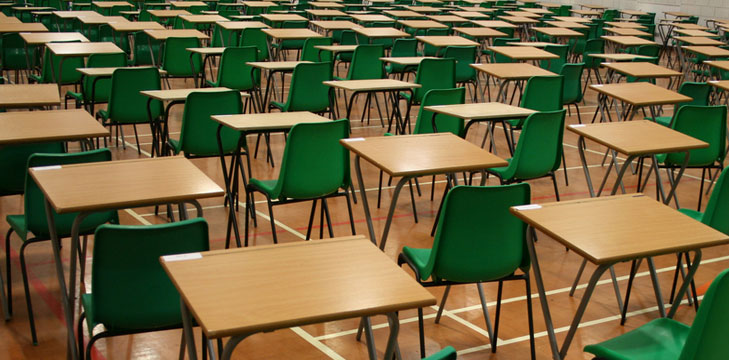With Scholarship exams (Schols) commencing from Monday, students have expressed to Trinity News that the system in place to stop cheating from occurring during the exams may not be fit for purpose.
Schols is awarded by the College to mainly second year students on the basis of a set of “searching” exams sat after Christmas. Students must achieve an overall first in these exams, to be entitled to “the most prestigious undergraduate award in the country,” of which benefits include free on-campus accommodation and a waiving of all tuition fees for the five year term of the scholarship.
A minority of Schols recipients are known as Foundation Scholars and join the Provost and Fellows to constitute the corporation of the College.
Due to the Covid-19 pandemic, very few students are permitted to be on campus, meaning Schols exams have had to be moved online this year, to comply with government restrictions to stop the spread of the virus.
Speaking to Trinity News, students have expressed concern with the invigilation process and how it is meant to work during exams. Students were given a run through of how exams would be invigilated on Tuesday.
The invigilators will be asking students to share their screen via zoom a couple of times throughout the exam, to check that students have not been using cheating materials throughout the exam.
One medicine student speaking to Trinity News was extremely concerned about this process, saying that there seems to be “no process in place to stop students from copying and pasting answers or having notes on the screen, and simply closing the tab when being asked to share the screen on zoom”.
The student continued: “This is needed to maintain academic integrity, especially with the amount of scholarships being awarded for medicine this year having a quota.”
College proposed this “quota system” for the Schols examinations back in oOctober, over fears of “grade inflation”. The previous system allowed anyone who reached a previously set overall grade point average to be awarded a scholarship, rather than a competitive process such as this one.
Students told Trinity News they are all “a bit concerned” about the lack of invigilation, which would make it possible for some students to copy and paste pre-written answers.
“As well as this it seems possible to have notes open on the computer and then close them once asked to share your screen,” one student expressed. “I think the main concern is due to the quotas which are in place this year and how Scholarship exams are now a competitive examination.”
Visitors have upheld the controversial decision to implement a quota for the Scholarship examinations, which was met with “outrage” from scholars upon its proposal.
Despite drawbacks over the introduction of the quota systems being implemented for the quota system, students have expressed that there are “better options” for invigilators to hold these exams that would uphold the integrity of the process.
One student suggested the platform ‘Proctorio’, which prevents such events as closing tabs before sharing your screen from happening, and “thus this seems like a much better option than zoom”.
“I think the problem of Zoom invigilation is that the screen is not constantly being monitored, and you are only asked once or twice to share your screen for a moment with the invigilators,” the student added. “Proctorio is an invigilation platform that has been used for other exams which monitors all activity on the screen and shuts down all open tabs. This seems like a fairer approach to ensure academic integrity.”
Students applying for Schols are due to sit three to four exams during the course of the next week.






